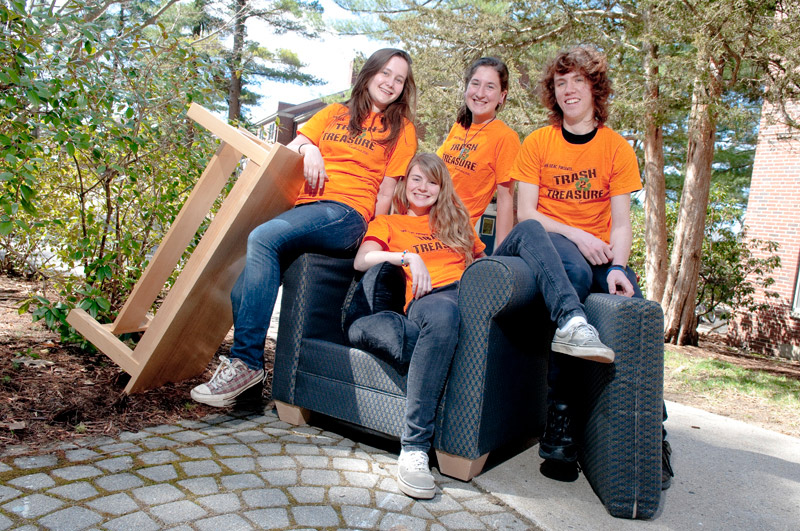
hen Lauren Banker ’13, Alex Freid ’13, Emily Spognardi ’14 and Erica Vazza ’14 walked into the Gables community room in May 2011, they beheld dozens of lamps, couches and other dorm items. “It looked like a pawn shop,” recalls Spognardi.
“We knew students threw out a lot that could be reused,” adds Vazza. “We didn’t know if they would choose to donate it.”
Donate it they did, and by so doing helped solidify an idea that became Trash 2 Treasure (T2T), a student-led sustainability initiative to keep useful items out of the landfill and save students and the university money. A decade later, the program is the model for more than 400 universities that have implemented similar efforts on their own campuses.
They also connected with Vazza and Spognardi through the Student Environmental Action Coalition, who helped them turn a good idea into an ongoing program. In spring 2011, the foursome raised money through grants and a silent auction. “We wanted this to be a community program,” says Banker. “We contacted local businesses to donate to the auction and everyone was supportive and enthusiastic.” Equally enthusiastic were UNH’s students, who showed up in force with furniture and dorm décor, kitchen items and more for that first donation drive at the Gables.
With the help of UNH faculty, staff and many Seacoast community members, Freid went on to create a national zero waste program. The nonprofit Post-Landfill Action Network works with colleges and universities across the country and employs 10 full-time staff to help student leaders launch and sustain their own T2T-type programs. And while T2T, like so many things, is currently suspended because of the COVID-19 crisis, those who were responsible for starting it foresee a sustained future for the sustainability effort, keeping dorm-worthy used items in residence halls and out of local landfills for years to come.